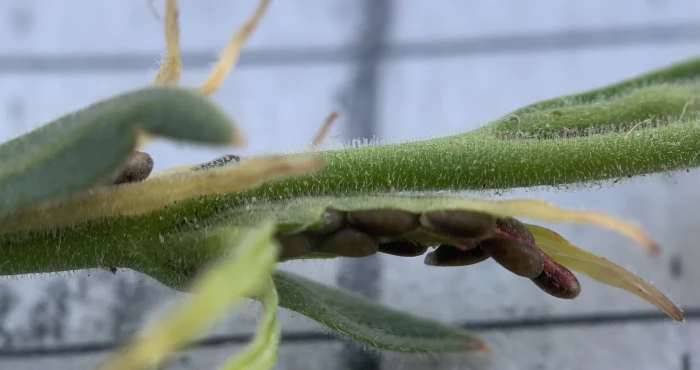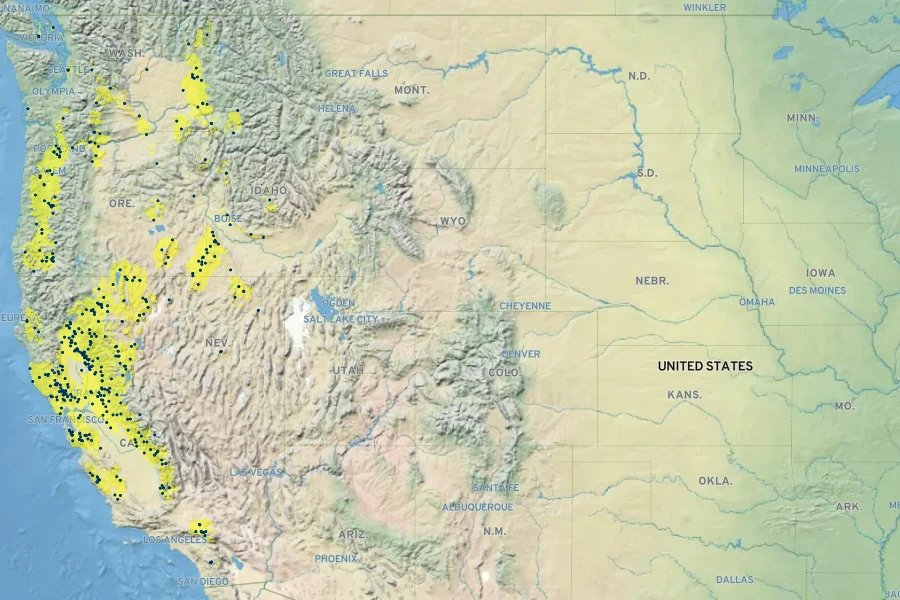Torrey’s Willowherb
/
(Epilobium torreyi)
Torrey’s Willowherb (Epilobium torreyi)
/

© mark-groeneveld
CC BY 4.0
Image By:
© mark-groeneveld
Recorded By:
Copyright:
CC BY 4.0
Copyright Notice:
Photo by: © mark-groeneveld | License Type: CC BY 4.0 | License URL: http://creativecommons.org/licenses/by/4.0/ | Uploader: mark-groeneveld | Publisher: iNaturalist |





Summary
Epilobium torreyi, commonly known as Torrey’s willowherb, is a perennial herb that is native to riparian zones, wet meadows, and moist mountain slopes in western North America, ranging from British Columbia to California. It typically grows to a height of 1 to 3 feet (0.3 to 0.9 meters) with a narrow, upright form. The leaves are lance-shaped, and the plant produces a glandular inflorescence with tiny, yet showy, white or pink flowers during the summer months. Following flowering, it develops a fruit capsule up to a centimeter long.
Torrey’s willowherb is valued for its ability to thrive in wet conditions and is often used for habitat restoration and erosion control in its native range. It is also appreciated by gardeners for its delicate flowers and its attractiveness to pollinators such as bees and butterflies. This species prefers consistently moist soil, partial to full sun exposure, and can tolerate a range of soil types provided they are well-draining. While generally low-maintenance, it can spread rapidly and may require management to prevent unwanted colonization of garden spaces.CC BY-SA 4.0
Torrey’s willowherb is valued for its ability to thrive in wet conditions and is often used for habitat restoration and erosion control in its native range. It is also appreciated by gardeners for its delicate flowers and its attractiveness to pollinators such as bees and butterflies. This species prefers consistently moist soil, partial to full sun exposure, and can tolerate a range of soil types provided they are well-draining. While generally low-maintenance, it can spread rapidly and may require management to prevent unwanted colonization of garden spaces.CC BY-SA 4.0
Plant Description
- Plant Type: Herb
- Height: 1-3 feet
- Width: 0.5-1 feet
- Growth Rate: Moderate
- Flower Color: Pink, White
- Flowering Season: Spring, Summer
- Leaf Retention:
Growth Requirements
- Sun: Full Sun, Part Shade
- Drainage: Medium
Common Uses
Butterfly Garden, Low Maintenance, Water Garden
Natural Habitat
Native to riparian zones, wet meadows, and moist mountain slopes in western North America
Other Names
Common Names: Narrowleaf Willowweed, Torrey’s Evening Primrose, Brook Spike-Primrose, Brook Willowherb
Scientific Names: Epilobium torreyi, Boisduvalia parviflora, Boisduvalia stricta, Boisduvalia torreyi, Gayophytum strictum, Oenothera densiflora var. tenella, Oenothera torreyi
GBIF Accepted Name: Epilobium torreyi
